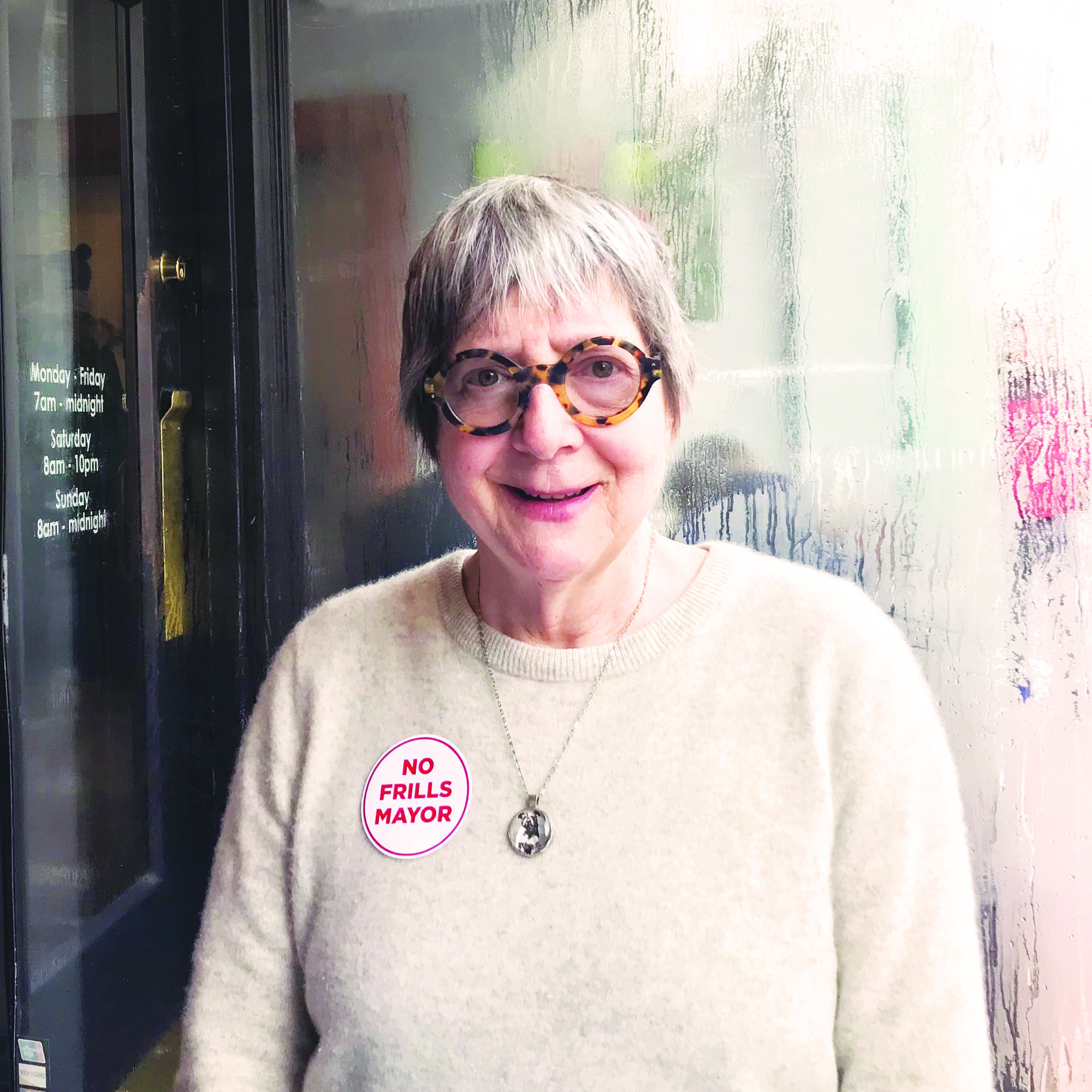
Longtime city resident, former Yale New Haven Hospital nurse and New Haven activist, Wendy Hamilton, filed paperwork to run for mayor last Thursday, seeking to focus on discontent with the status quo at City Hall in her bid to replace Mayor Toni Harp.
“I’m running for mayor because I want a better city and I’m fed up with the current regime,” Hamilton, sporting a “No Frills Mayor” sticker, told the News. “I’m sick of the greed and the graft.”
The 2019 mayoral race began to heat up with Alder-turned-nonprofit-director Justin Elicker’s entry last Wednesday. After Elicker filed his papers, Harp told the New Haven Independent that she intends to run for a fourth term, setting up what is projected to be the most competitive mayoral race since 2013. Elicker and Harp were the two top contenders in the 2013 race, when both ran to fill the seat vacated by long-term former Mayor John DeStefano.
Though she cruised to re-election in 2015 and 2017, Harp has recently faced scrutiny in the wake of tough financial times for the city. With Hamilton’s entry, the field now has a third contender.
Hamilton said she intends to self-fund her campaign and has yet to name any campaign staffers or volunteers. In 2016, Hamilton captured the Elm City’s attention when she donated roughly $1 million of her late grandmother’s inheritance to various causes in New Haven. In an interview with the News, she identified several of the issues that have plagued Elm City in recent years and noted that she is running for mayor to unseat the current administration, which she identified as inefficient and indifferent to Elm City residents.She referred to Harp’s “crew” as the “Harpettes” and said that they have done little — if anything — for the city. Although Hamilton is “running to win,” she acknowledged that if it became clear that Harp had a close competitor and Hamilton’s run might split the non-Harp vote, she would bow out in order to prioritize defeating Harp.
“Whatever [Harp] has done has been too little, too late, if at all,” said Hamilton.
Harp’s office did not respond to request for comment.
Hamilton’s official platform statement includes 13 points, including using “city people for city jobs,” leveraging Yale to contribute its “fair share” and taking a “Housing First” approach to homelessness. She also intends to take over abandoned properties to create more housing if elected.
As Hamilton identified New Haven’s primary concerns, she echoed the sentiment of much of the New Haven community on issues such as the budget, the public school system and affordable housing.
Fiscal responsibility is bound to be a significant talking point for all candidates this election cycle, as several Connecticut municipalities have struggled to balance their budgets. In last year’s budget negotiations, Harp took on the city’s largest-ever debt restructuring to free up cash for operations short-term. Such a move extends the burden of the city’s debt payment well in the next decade.
Hamilton pointed to the Elm City’s poor financial standing and highlighted the amount that the city pays in debt service each year — which is just under $60 million — while lamenting the lack of funding for the city’s public school system. She promised, if elected, to divert greater funds to the community, noting that she would increase the salaries of public school teachers and police officers, among other positions.
But the mayoral candidate denounced using taxes as a source of revenue, explicitly criticizing an 11 percent tax hike by the Harp administration last summer. Hamilton said that the policy prompted her to “get off the couch” and yell into a bullhorn in front of City Hall about the “what-the-f— tax.” However, she did not identify what the primary source of revenue would be in an already cash-strapped city.
Hamilton added that she is looking to “cut the fluff” if elected mayor — reducing photo opportunities and not accepting a salary, a bodyguard, a car or a “trip to China,” — in reference to Harp’s nine-day visit to the country last April.
Hamilton also echoed some residents’ frustration with Yale’s tax-exempt status, arguing that the University “should share some of its hoard.” As a nonprofit college, Yale — along with other area schools — does not pay taxes on academic property, decreasing the city’s taxable property significantly. The University does pay the city a voluntary payment each year — $11.5 million for this fiscal year. But this $11.5 million is significantly lower than the taxes it would pay without the exemption.
In recent months, Harp’s key staffers have emphasized that she inherited the city’s poor financial standing. Elicker’s statement following his entry into the race stressed that the city needed stronger financial management, and his official biography includes a reference to his time on the Board of Alders as being an advocate for fiscal responsibility and government accountability. Elicker is running his campaign using the city’s public financing system.
“I feel very strongly that participating in New Haven’s public financing fund, the Democracy Fund, is critical to having a clean, transparent and efficient government,” he told the News.
Hamilton began working at Yale New Haven Hospital in 1984, one year after she moved to New Haven.
Angela Xiao | angela.xiao@yale.edu
Sammy Westfall | sammy.westfall@yale.edu







